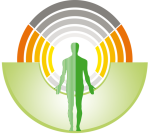What is a CT Scan?
A CT scan refers to cross-sectional imaging of various parts of the body using X-rays. This imaging method allows physicians to examine internal body parts with very high quality.
CT scans have numerous applications, particularly for assessing the condition of individuals who may have internal injuries or fractures resulting from car accidents or other types of trauma.
CT scans can be used to diagnose issues related to internal organs and also for planning medical treatments, including surgery or radiation therapy.

